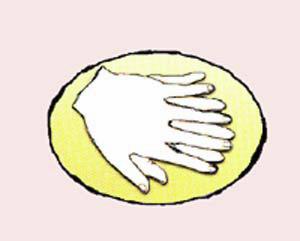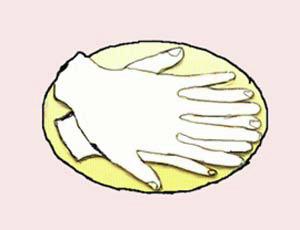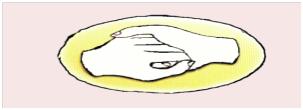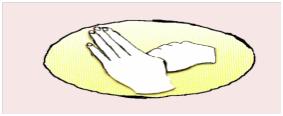Biological Disaster
Biological Disaster
Information
Biological disasters are causative of process or phenomenon of organic origin or conveyed by biological vectors, including exposure to pathogenic micro-organisms, toxins and bioactive substances that may cause loss of life, injury, illness or other health impacts, property damage, loss of livelihoods and services, social and economic disruption, or environmental damage. Examples of biological disasters include outbreaks of epidemic diseases, plant or animal contagion, insect or other animal plagues and infestation. Biological disasters may be in the form of:-
Epidemic
Epidemic affecting a disproportionately large number of individuals within a population, community, or region at the same time, examples being Cholera, Plague, Japanese Encephalitis (JE)/Acute Encephalitis Syndrome (AES); or,
Pandemic
Pandemic is an epidemic that spreads across a large region, that is, a continent, or even worldwide of existing, emerging or reemerging diseases and pestilences, example being Influenza H1N1 (Swine Flu) or COVID 19.
Do's and Dont's
Before The Disaster
Plan for Family Biological Disaster Plan.
Preparation by ensuring Prevention measures:-
- Personal cleanliness - daily bath, don’t grow long nails and wear clean clothes.
- Hand Hygiene (Wash hands with soap and water before preparing food or eating, after passing stools, coughing or sneezing). The steps of hand washing are:-
|
|
|
|
|
|
|
|
- Eat nutritious and balanced food.
- Immunisation state should be upto date.
- Prevent overcrowding.
- Good ventilation.
- Protect from hot and cold weather.
- Health Education.
- Surveillance.
Take a First Aid and Cardio-Pulmonary Resuscitation (CPR) training.
Subscribe to a Medical Insurance Plan.
Diarrhoeal Group of Diseases Including Cholera
Do’s
- Hand Hygiene.
- Encourage drinking of water from a safe source or water that has been disinfected (chlorinated). Add bleaching powder in all community wells at regular intervals. Use water pumped out from India Mark II hand pumps, if installed in the village/community.
- Drink boiled potable water in an emergency that has been boiled for at least 15 minutes and consumed it the same day.
- Promote storage of water in narrow mouthed container.
- Cook food thoroughly especially meat, poultry, eggs and seafood until it is steaming and eat it while it is still hot.
- Ensure cooked meat and poultry is safe and no part of the meat discoloured or foul smelling, or in the case of egg, their shells are not cracked.
- If food is not eaten immediately, reheat cooked until it is steaming hot prior to serving.
- Keep food items covered.
- Increase fluid intake as soon as diarrhoea starts by drinking ORS solution or home-made preparation of Table Salt 5 grams (1 teaspoon) in and 20 grams (4 teaspoons) of Sugar dissolved in 1 litre of drinking water.
- Encourage banana eating, which provides potassium.
- Continue feeding children when they are sick and to continue breastfeeding if the child is being breast fed.
- Refer the diarrhoea case to the nearest health facility in case of the following : Child is irritable, restless or lethargic or unconscious: eating or drinking poorly; child has marked thirst; child has fever or blood in stool.
Don’ts
- Do not drink water from unsafe sources.
- Do not eat uncooked food unless it is peeled or shelled.
- Do not leave cooked food at room temperature longer than 2 hours.
- Do not consume cut fruits from vendors.
- Do not defecate in open area.
- Do not give access to rats and houseflies in your premises.
Respiratory Group of Diseases like Tuberculosis, Influenza, Chickenpox, Meningitis
Do’s and Don’ts:
- Avoid close contact with people who are having respiratory illness.
- The sick person should stay at home, and avoid going into the community, school/office, public places for at least 24 hours after symptoms have resolved.
- Sick persons at home should keep distance from others.
- Respiratory Hygiene/Cough Etiquette:-
- Cover the nose/mouth with a handkerchief/ tissue paper when coughing or sneezing which should be disposed off in dustbins;
- Perform hand hygiene (e.g., frequent hand washing with soap and water, alcohol-based hand rub, or antiseptic hand wash) and thoroughly dried preferably using disposable tissue/ paper/ towel after contact after having contact with respiratory secretions and contaminated objects/materials.
- Triple layer surgical Mask of standard and certified make should be worn by Suspected/ probable/confirmed cases of influenza or by the care provider in home care settings and close family contacts of such cases undergoing home care.
- Get plenty of sleep, be physically active, manage your stress, drink plenty of fluids, and eat nutritious food.
- Avoid smoking.
- Persons who have difficulty breathing or shortness of breath should seek immediate medical attention and report to the nearby hospital.
- If sick persons must go into the community (e.g., to seek medical care), then they should wear a face mask or use a handkerchief or tissues to cover any coughing and sneezing so as to reduce the risk of spreading the infection in the community.
- Immunization status should be upto date as per National Universal Immunisation Programme.
Mosquito Borne Diseases like Malaria, Dengue, Filaria, Chikungunya
Do’s
- Follow “sun-down sleeves-down” approach. Wear clothes that cover arms and legs.
- Prevent water collections on ground and other places to prevent malaria breedinEmpty water containers at least once a week.
- Remove water from coolers from time to time.
- Cover and seal any septic tanks.
- Use Mosquito Nets preferably Insecticide Treated Bed Nets (ITBN).
- Apply insect repellants while sleeping to keep away mosquitoes.
- Seek medical advice in case of rashes, mental irritation or unconsciousness..
Don’ts
- Do not encourage children to wear shorts and half sleeved clothing.
- Do not allow water to stagnate.
- Do not allow discarded items to accumulate such as tires, tubes, empty coconut shells, household items and objects wherein water may collect.
- Do not bathe in village ponds and allow cattle to take bath in the same pond.
Emergency Kit
- Oral Rehydration Solution (ORS) sachets.
- Tablet Paracetamol.
- Tablet Anti-diarrhoea.
- Tablet Anti-spasmodic.
Source: National Disaster Management Authority(NDMA), Government of India
Last Modified : 11/16/2023
The Office of the Principal Scientific Adviser to ...
Provides information about AYUSH-64 for treatment ...
Tips for handling mental issues during pandemics/d...
Provides information about what precisely are oxyg...






